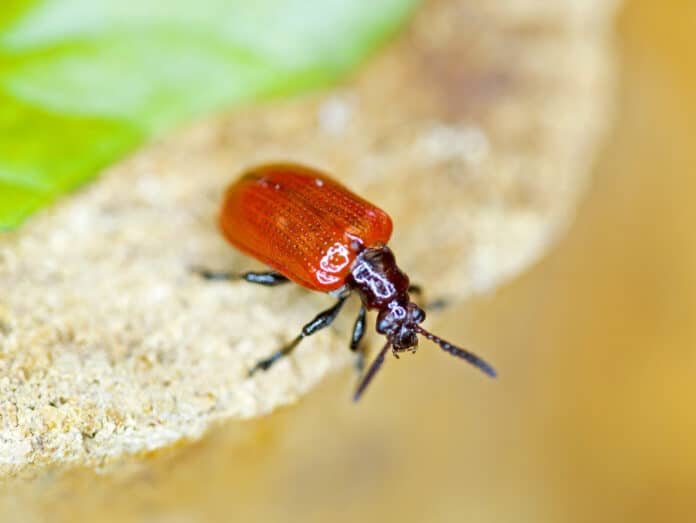GAINESVILLE, Fla. — Across Florida, thousands of small, red beetles have been battling the invasive air potato vine for the last eight years, one bite at a time.
And they appear to be prospering, according to the latest data collected through the collaborative efforts of the University of Florida, the Florida Department of Agriculture and Consumer Services, and hundreds of citizen scientists.
“The data we’ve collected so far have shown how well the air potato beetle has established throughout the state,” said Christopher Kerr, a scientist with the FDACS Division of Plant Industry, who manages its air potato beetle rearing program. “Most of the sites we received data from showed increased populations through the season.”
UF and FDACS teamed up to create an educational series for the program, which teaches participants how to identify the air potato vine and beetle, and how to collect data on the status of the vines and beetles on their properties, after which they join the group as citizen scientists.
“These citizen scientists make up the Air Potato Patrol, which now has more than 450 members in Florida”, said Bill Lester, residential horticulture agent for Hernando County with UF’s Institute of Food and Agricultural Sciences Extension.
After a year of receiving data, the data collected indicated that the beetle population was growing, even on sites that had not received any releases. This is good news for the efforts to control the invasive vine, which is known to engulf existing vegetation and disrupt native ecosystems. The air potato beetle eats only the air potato plant, making it an excellent control agent. FDACS began releasing the beetles in Florida in 2010 with the goal of establishing a sustainable population.
In addition to submitting data, members of the Air Potato Patrol work with Lester to determine if the air potato problem on their properties requires additional beetles. Mary Estes, whose Hillsborough County property was overrun with air potato, received beetles though the program.
“The vine was choking out my plants and trees, and killed two of my orange trees,” she said. “Given the nature of this vine, I think citizens have to be involved.”
For years, patrol member Donald Jones had been struggling to control air potato on his Polk County property, where it was smothering his live oak trees. Since introducing the beetles, he’s seen no new vines. “I’ve learned, with UF’s help, how to spot them. We have some native vines here that look very close to the air potato vines,” he said.
To become a member of the Air Potato Patrol or learn more about the program, go to airpotatobeetle.com .

